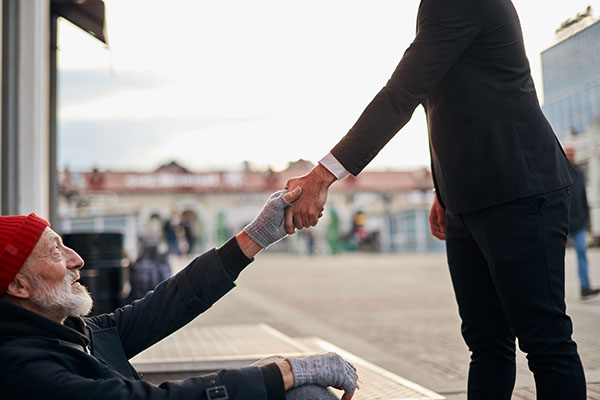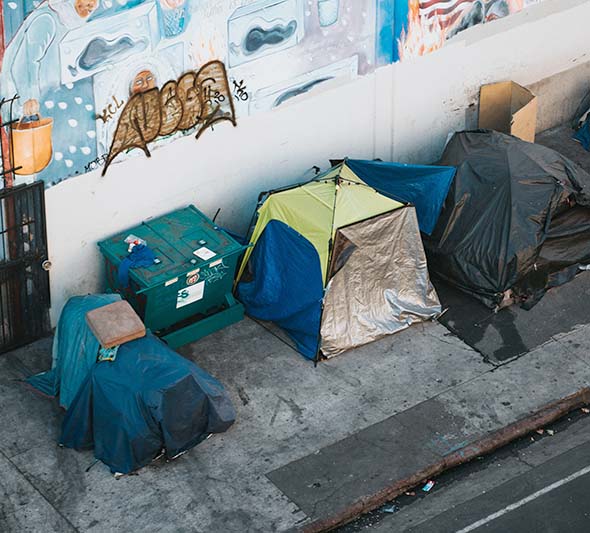A mother in Anne Berest’s best-selling novel The Postcard is recounting for her daughter the story of her own mother’s family in France in the late 1930s and early 1940s. One child escaped but the rest were rounded up by the collaborating French government authorities and later killed by Germans in Auschwitz for being Jewish. They and the other Jewish people living in France at the time “existed in the gray area of indifference,” the mother says.
When the daughter protests, asking how people at the time could have let this happen, the mother replies:
“Indifference is universal. Who are you indifferent toward today, right now? . . . Which victims living in tents, or under overpasses, or in camps way outside of the cities are your ‘invisible ones’?”
The Holocaust was one of the worst—quite possibly the worst—mass atrocity in history. Thankfully, we do not live in a time in America when Auschwitz and the Nazi’s other death camps exist.
But indifference continues in many sizes and forms, including, as Berest states so poignantly in her powerful novel, for people living without housing of their own.
Homelessness is widespread in economically-developed countries and especially in the United States. An estimated 653,000 people were living homeless in America on a single night in January at last count.
And the problem is getting worse.
The number of people living without housing in the United States increased from the prior year by about 12 percent.
Sadly, people not only live homeless. Thousands of Americans also die homeless each year.
December 21st, the longest night of the year because of the winter equinox, is designated as a national memorial day for those people who died homeless. Many communities have events to remember and pray for the individuals who lost their lives while living on the streets and in shelters.
In addition, it should be a time to redouble our efforts socially and politically to end homelessness.
As I have summarized in prior posts, there is no shortage of actions that can end homelessness.
Doing so will improve the health, well-being, and longevity of our fellow citizens now living without housing.
Taking action will also improve our own individual and collective moral fiber and humanity, for no one should have to live homeless.
But to do so, we must overcome our indifference.
Isn’t it time to embrace compassion and action rather than indifference?

Lead photo by Nathan Dumlao, Unsplash



I so agree with and respect your views of homelessness and how we can help to provide support and needed services.
Thank you, Susan. We certainly need to do much more at private, local, state, and federal levels to end homelessness. Thanks for your concern!